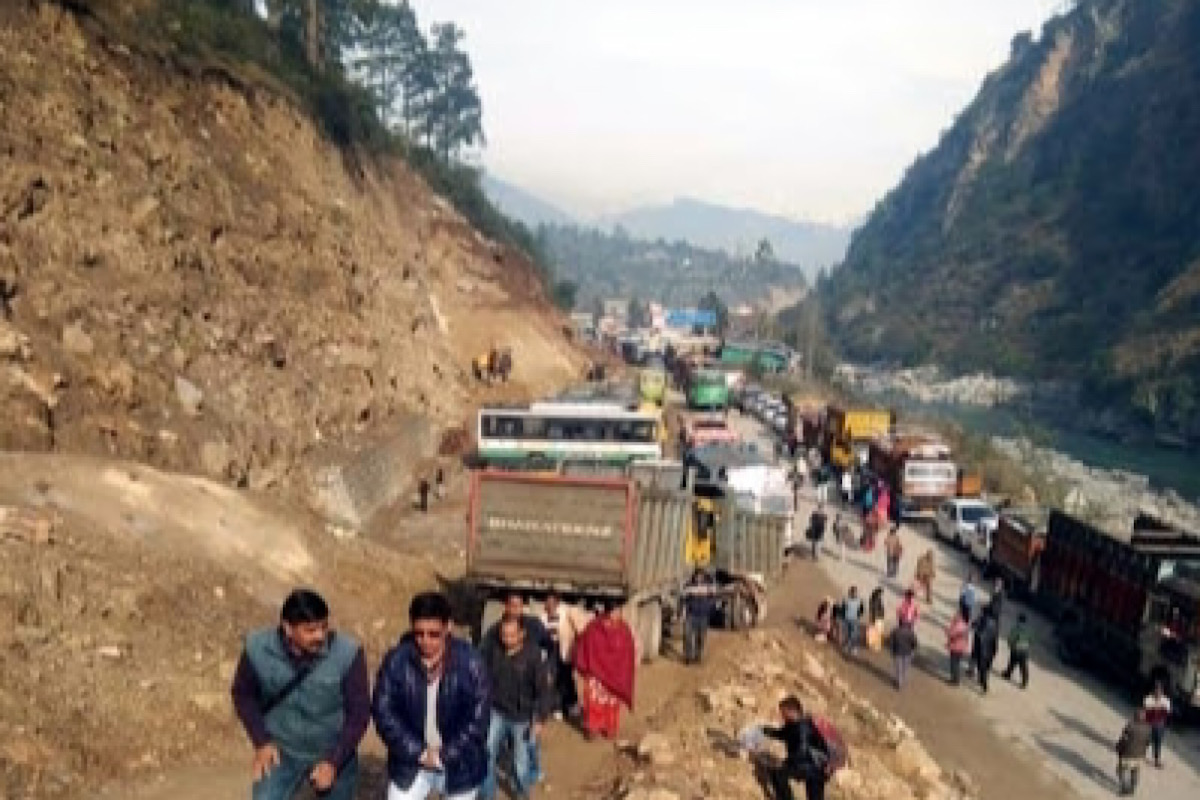Kullu and Manali is not bustling with tourists for the past 45 days. No tourism means no money and that means that the livelihood of the people ~ hoteliers, homestay owners, transporters, farmers, etc is at stake. After all, the national highway that connects the twin towns of Kullu and Manali to the rest of India is disconnected at various places due to recent landslides after the monsoon mayhem. Locals say complete repair and renovation will take at least five years, such was the destruction.
But these very stakeholders ~ hoteliers, taxi union operators, travel agent associations, mahila mandals have come together to pick up the pieces. They have been organising a ‘shramdaan’, voluntarily offering manual labour services to the NHAI and state administration to put back a crate wall (a kind of retaining wall) in place. “It is a long haul, but the idea is to help every stakeholder involved, be it hoteliers, taxi services operators or others who have lost business worth crores due to blocked national highway,” says Anil Kant, a Kullu-based hotelier. “People are voluntarily doing manual labour and others are delivering food, water, and cold drinks to ensure work doesn’t stop. They offered their services when it came to light that the NHAI had only 2-3 labourers to do labour work.
Advertisement
The very first day we were just about five people, now we are more than 50, ”says Raj Kumar Dogra, President of Manali Taxi Operator Union. Right now the volunteers ~ Hamta Prayavaran Samiti, Mahila mandals, HP Travel Agents Association, and Manali Taxi Operators Union ~ are contributing physically in order to build the 180-metre-long crate wall by themselves on the Manali bypass, just about 500 metres from the town. Most of the volunteers are white-collar men doing a blue-collar job.
The brain behind this volunteer movement is Budhi Prakash Thakur, president of HP Travel Agents Association, who is also a hotelier, entrepreneur and an innovator who started Himalayan Bulls, an air service from Chandigarh to Manali on his own in 2014. Budhi Prakash says: “If we do not contribute, on its own it will take anything between two to four years for the government to repair these bottlenecks on the national highway.
Though one-way traffic is open, it remains sluggish due to long traffic jams, Volvo buses are not plying and crop produce is rotting either on the field or in the trucks.” “It’s been two months and not a single Volvo has entered the state. The entire economy is dependent on tourism and the transportation of goods. Volvo buses are the lifeline which brings in throngs of tourists every day,” says Sunita Bodh, a social activist based in Manali.
Another hotel owner Anju Rais says: “Without tourism Manali is dead. Tourism is the lifeline of Manali.” Not just tourism, but transportation of crops from Lahaul and the apple belt of Manali has either halted or moving at a snail’s pace because of broken roads. Anju tells how woeful the scenario is, “Each hotel has a staff strength of 20 to 25.
They have to be paid their salaries but there is no revenue. The situation is even worse than during the Covid lockdown.” However, clarifying on behalf of the National Highway, Ashok Chauhan, Supervision consultant, NHAI, says, “Due to the heavy destruction on the highway, reconstruction will take time. Our labour force only gets to work between 10 p.m. to 6 a.m, in the night. In the daytime, one-way road is open for traffic.
About four km stretch of road has vanished at 10 to 15 different locations.” He says there’s another dimension to the problem. The construction material is taking a long time to reach the affected sites due to long traffic jams. However, he ends on a positive note: “The double lane will be through by 15 October.”











